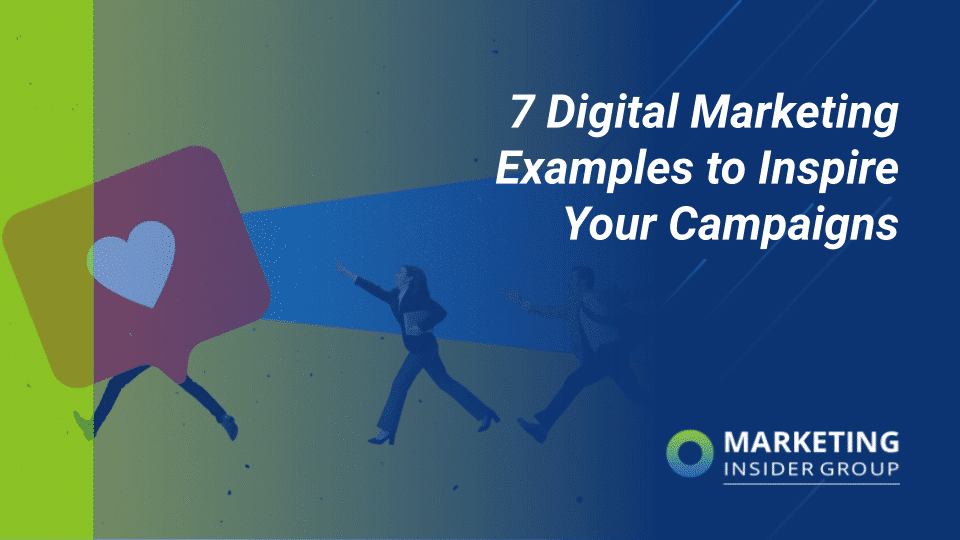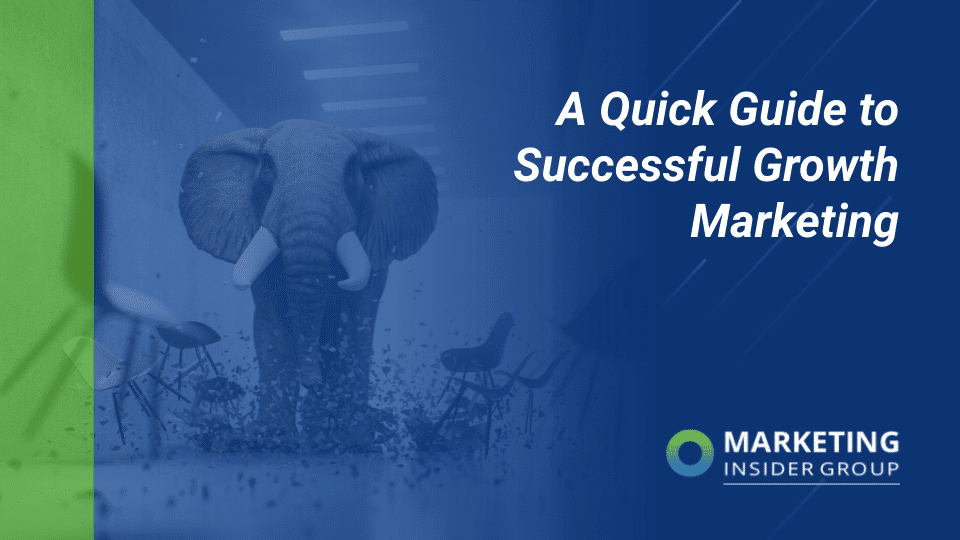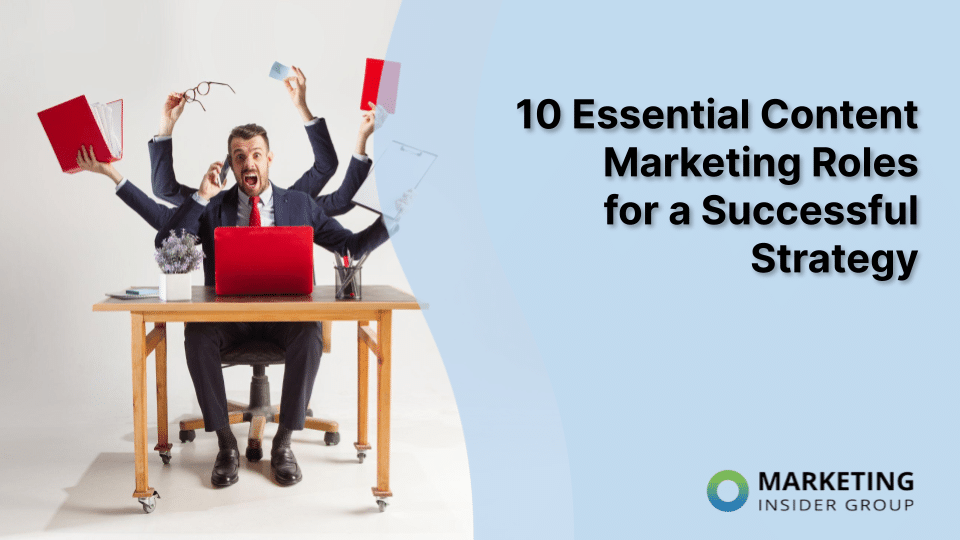
The Roadmap to Successful Marketing Campaigns in 2024
Impactful marketing campaigns transcend product promotion, playing a pivotal role in sculpting a brand’s identity, forging emotional bonds with the audience, and ultimately driving tangible results in leads and ROI. Launching a campaign is easy; launching a successful one is not so easy.
In a world saturated with marketing campaigns, especially in advertising—a subset emphasizing creative and persuasive messages—the public is inundated, presenting a significant challenge to stand out. The average person sees about 5,000 ads daily, equating to more than 1.8 million per year.[1] Yes, you read that correctly: 5,000 ads every single day! With such overwhelming exposure, it’s imperative to understand best practices, lean on an experienced marketing agency, and plan and execute strategically.
As we navigate through 2024, embracing best practices becomes crucial for planning marketing campaigns that capture an audience’s attention and deliver successful and measurable outcomes.
What Is a Marketing Campaign?
Before we get into the nitty-gritty details, it’s vital to understand what a marketing campaign is. A marketing campaign is a focused, strategic effort to promote a specific product, service, or brand. It involves coordinated activities, usually across various channels, to achieve predefined goals and objectives. Some marketing campaigns may aim to capture customer feedback, while others wish to raise awareness for a new product.
Types of Marketing Campaigns
Before purchasing a product or service, individuals typically research, evaluate, and engage with potential companies. Campaigns revolve around this buyer’s journey—the process a prospective buyer undergoes before making a purchase. Mapping out this journey can offer insight into prospects’ needs and guide the provision of relevant information. Campaigns typically target three stages of the buyer’s journey: Awareness, Consideration, and Decision. Each stage informs the type of campaign to create, tailored to target prospective buyers in a specific stage.
- In the awareness stage, prospective customers know they have a problem that requires a solution. They are likely looking for resources to learn about possible solutions. Campaigns that target the awareness stage revolve around educating, informing, and sometimes proposing a solution to the problem. Often, this includes resources such as articles, eBooks, and whitepapers.
- In the consideration stage, prospective customers actively research their options—now with a deeper understanding of their problem—and evaluate specific solutions. Campaigns that target the consideration stage incorporate continued education but mainly highlight how a company’s offering is different and better solution than its competitors.
- In the decision stage, prospective customers are on the brink of making a choice but may require an extra push to finalize their decision. This could be achieved through incentives like discounts, customized demos, or free consultations. And don’t forget that while prospective customers may be close to choosing your company, they can still change their minds. Optimize every interaction with value-adds and responsiveness.
Components of a Marketing Campaign
A successful marketing campaign comprises various crucial elements, each meticulously planned to achieve desired outcomes. Let’s delve into these components:
Goals & KPIs
Begin by clearly defining your goals. Are you aiming for increased brand awareness, lead generation, or sales growth? Establish Key Performance Indicators (KPIs) to measure success and ensure they align with your overarching business objectives. For instance, maybe you wish to increase online sales. A KPI for this may be to increase web traffic by 10% this month. Tracking KPIs can help provide insight into what your company is doing well and where it could improve.
Timeline
A well-structured timeline is essential for the success of any marketing campaign. A marketing timeline can give you an overview of all the activities and initiatives to be executed. By establishing a timeline for your campaign, you can organize your projects according to deadlines on a per-project, quarterly, or annual basis. You can set milestones and deadlines by breaking the campaign into phases to keep the team on track. Consider the seasonality and industry trends that might impact your timeline.
Budget
Allocate your resources wisely. Determine a realistic budget based on your goals and the channels you plan to leverage. According to the 2024 B2B Marketing Mix Report, nearly half (48%) of all surveyed businesses intend to increase their budget in 2024 compared to 2023. Be prepared to invest in creative content, advertising, and other necessary tools to make your campaign stand out.
Channels
Identifying the most effective channels for reaching your target audience is essential. This may include a combination of social media platforms, email marketing, search engine optimization, and traditional advertising. Tailor your approach to the habits and preferences of your audience.
Types of marketing campaign channels include:
- Social media marketing
- Email marketing
- Influencer partnership marketing
- Content marketing
- Search Engine Marketing (SEM)
- Search Engine Optimization (SEO)
- Guerilla marketing
- Event marketing
- Direct mail marketing
- Mobile marketing
Offer
And finally, your offer is pivotal to your campaign, serving as the catalyst for prospect engagement. It entices prospects to fill out a form, becoming qualified leads in your sales pipeline. Tailored to the campaign stage—awareness, consideration, or decision—it varies: educational content (whitepapers, eBooks) for awareness, comparative tools (case studies, checklists) for consideration, and decisive actions (free demo, discount code) for the decision stage.
Not sure where to start? Download our interactive template: Planning & Executing a Strategic Marketing Campaign for guidance.
Creating a Marketing Campaign
The most essential part of creating a marketing campaign is planning. Planning is crucial to ensuring that all components are well thought out and that you cover the necessary bases.
Concepting
A vital component of a successful marketing campaign is establishing a compelling concept built around the offer. It’s not enough to offer a free download or discount but to anchor the offer in a bigger idea tied to seasonality, tradeshows, industry trends, or national holidays. Brainstorm creative and engaging ideas that resonate with your audience. Consider incorporating storytelling, visuals, and interactive elements to make your campaign memorable. It can also be helpful to examine marketing campaigns that have proven successful and those that have tanked for more insight.
Distribution
Once you have a solid concept, plan the distribution strategy. You can leverage multiple platforms to maximize reach and engagement. Choose the channels that align with your target audience’s behavior. For instance, if you are trying to increase awareness surrounding a product and your target audience is ages 55-70, TikTok probably wouldn’t be the best choice for distributing content.
Conversion to Customers
Drive your audience towards conversion by implementing effective calls-to-action (CTAs) and a seamless customer journey. Whether making a purchase, signing up for a newsletter, or downloading content, the conversion process should be intuitive and user-friendly.
Measuring & Assessing
Utilize analytics tools to track the performance of your campaign. Monitor KPIs and gather insights into what worked and what didn’t. Use this data to make informed decisions for future campaigns. Don’t be afraid to iterate and optimize based on the feedback and data collected. Marketing is an evolving process, and continuous improvement is critical to staying ahead of the competition.
Launching an Impactful Marketing Campaign
When executed strategically, marketing campaigns are vital in building brand identity, engaging audiences, and achieving business objectives. Through thoughtful planning, execution, and analysis, businesses can create memorable campaigns that leave a lasting impact.
Need assistance creating an effective marketing campaign? Sagefrog’s dedicated B2B marketing strategy experts can provide a thorough view of your market landscape, help you establish the right KPIs and target audience, and develop a comprehensive marketing campaign that converts prospects into leads! Contact Sagefrog today to learn how we’ll work together to achieve your goals in 2024.
[1] “Thinking vs Feeling: The Psychology of Advertising.” USC Dornsife College of Letters, Arts and Science, November 17, 2023. https://appliedpsychologydegree.usc.edu/blog/thinking-vs-feeling-the-psychology-of-advertising






